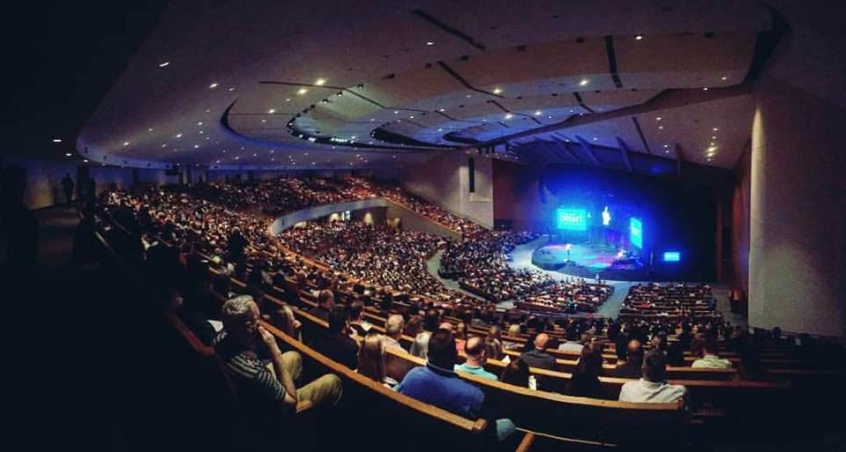How much of a church's budget ought to go towards paying staff, and how much should be spent on mission or given away?
It's a question that's been highlighted by the production of a report into the budgets of 1,251 churches around the world with weekly congregations of at least 2000. Most of them – 1,159 – are in the US, though there are 56 in Canada, 23 in South Africa and even eight in Britain.

Conducted by the Leadership Network and the Vanderbloemen Search Group, 12 Salary Trends Every Church Leader Should Know: 2016 Large Church Salary Study found that nearly half of the budgets of these churches went towards paying their staff. It also found that 54 per cent of churches gave bonuses to the senior pastor within the last 12 months – and that in 81 per cent of churches, most of the congregation don't know how much the pastor earns.
Perhaps the most thought-provoking finding, though, is that only around half of these large churches (52 per cent) spend more than 10 per cent of their budget on "ministry beyond their own congregation – from local soup kitchens to world missions to church planting".
A survey like this is bound to be a very blunt instrument. It can also lend itself very easily to scare headlines about money wasted on staff when it could be used for mission. But of course, very often staff are mission. And without the preaching and pastoral ministry that sustains a congregation's life – and that has to be paid for – the engine that drives the whole enterprise will pretty soon seize up. It's easy to decry "maintenance ministry" – there are so many more exciting things happening in the Christian world, after all! – but try running a car that has not been properly maintained and see how far you get. The proportion of a very small church's budget that is spent on staff costs – there might only be one full-time employee, the pastor – is likely to be much higher than a megachurch's, even though the total costs are far less.
But what about the amount spent on "mission"? This is broadly defined as anything from soup kitchens to church planting; whether it includes overseas missions is not clear from the summary. Here a church needs to probe more deeply and examine its conscience – any church, not just a megachurch. Because we are all inclined to pay more attention to what's on our doorsteps. We see that the church lounge needs redecorating, we get irritated with the poor sound system, and we think how nice it would be to replace the carpets. We just spend the money. The youth group is growing, so we employ a youth worker. Perhaps the congregation's growing too: if it's twice the size it was two years ago, surely we need two ministers to look after it? And this survey also found that 73 per cent of the churches it surveyed were growing, so obviously more resources are needed to look after them.
Well, perhaps; but then again, not necessarily. Because while we are noticing what's in our immediate field of view, perhaps Jesus is saying: "I tell you, lift up your eyes and look at the fields, for they are ripe fo harvest" (John 4:35).
A survey like this can't tell us very much about the interior life of a congregation. But it does challenge us to ask whether we are making ourselves too comfortable in church, perhaps at the expense of those who still need the Gospel in their lives. If we have beautiful carpets, a state-of-the-art sound system and a plethora of pastors, but the neighbourhood a couple of blocks away is desperate for a soup kitchen, or the pioneer ministry is on the verge of closing for lack of funds, or the indigenous missionaries in Europe or Africa or Asia are working themselves into an early grave, that can't be right. In the end, budgets should not be dictated by accountants, but by theology.













